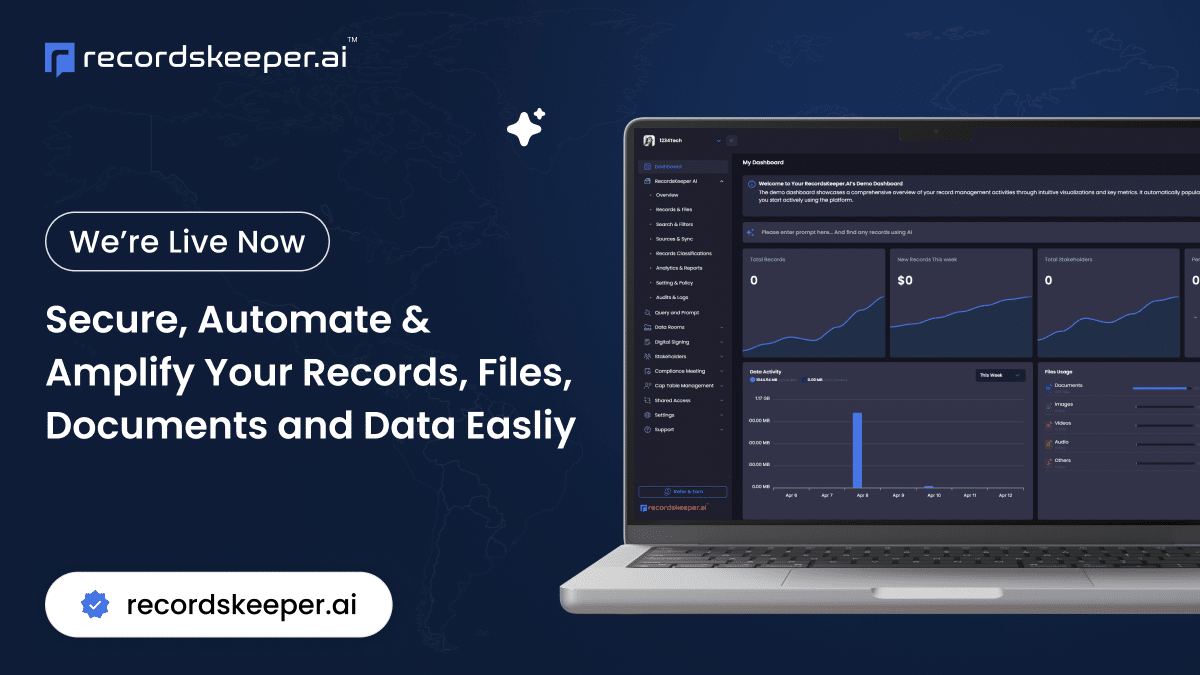Unleashing the Power of EMR Systems: Transforming Patient Safety and Minimizing Medical Errors
In the ever-evolving landscape of healthcare, the safety and security of patient data is more critical than ever. As the founder of RecordsKeeper.AI, a company at the forefront of innovation in record management, I understand the immense impact that technology can have on improving patient outcomes. EMR systems, or Electronic Medical Records, are one such technological marvel that has revolutionized patient safety and significantly reduced medical errors. This transformation resonates with my core belief that leveraging AI and Blockchain in record management can lead to exceptional efficiencies and security.
The Role of EMRs in Enhancing Patient Safety
At the heart of any medical practice is the commitment to delivering safe and effective care. EMRs are pivotal in achieving this mission by addressing the traditional loopholes associated with manual record-keeping. By automating and digitizing patient records, EMRs minimize human error, which has long been a nemesis in the medical field.
Automating Processes to Minimize Errors
Human errors in medical settings can range from misreading handwritten notes to incorrect medication dosages. EMRs streamline this process by offering a digital interface where patient information can be accurately recorded, tracked, and updated in real time. This automation ensures that caregivers have immediate access to the most up-to-date patient information, minimizing the likelihood of errors caused by outdated or incorrect data.
Enhancing Data Accuracy and Accessibility
EMR systems provide a centralized database where all patient information is stored securely. This accessibility ensures that healthcare providers, regardless of location, can access patient data quickly during consultations, surgeries, or emergencies. Seamless access to accurate information is crucial for timely diagnoses and treatments, which directly impacts patient outcomes.
The Promise of Medical Data Security
While improved patient safety is a cornerstone benefit, EMRs also address the integral concern of medical data security. As with any digital system, the security of sensitive information is paramount, and here is where EMR systems truly shine.
Securing Data Through Advanced Technologies
The integration of cutting-edge cybersecurity protocols within EMR systems acts as a robust safeguard against data breaches. These systems utilize encryption technologies to protect data both in transit and at rest, significantly reducing the risks of unauthorized access. For example, blockchain technology, famed for its immutability, can be used to create audit logs that verify data integrity and track access, ensuring that patient records remain unaltered and secure.
Compliance with Industry Standards
The healthcare industry is heavily regulated, with standards like HIPAA ensuring that patient information is handled, stored, and accessed following strict guidelines. EMR systems, through automation, help medical institutions adhere to these compliance requirements effortlessly by maintaining accurate audit trails and automating the implementation of data retention policies. By integrating compliance management, EMR systems remove the burden on healthcare providers, allowing them to focus on delivering quality care.
Real-Life Impacts
To illustrate the profound impact EMRs have on patient safety, consider a large urban hospital that transitioned from paper records to a comprehensive EMR system. Administration reported a significant reduction in transcription errors and almost eliminated the repetition of diagnostic tests, which in turn minimized patient exposure to unnecessary procedures and optimized resource use. These improvements not only enhanced patient safety but also streamlined operational efficiency.
The Road Ahead: EMR Systems and Beyond
As we look to the future, EMR systems will continue to evolve, integrating more advanced AI capabilities to predict potential medical complications before they manifest. By leveraging large datasets and machine learning, future EMR systems could offer predictive analytics, empowering caregivers with insights to provide proactive and informed care.
It’s this evolving landscape that excites me most as a tech entrepreneur. The journey of EMR systems is far from over, and I firmly believe that by coupling these systems with emerging technologies like AI and blockchain, the healthcare sector can achieve unprecedented levels of patient safety and data security.
In conclusion, I encourage healthcare leaders to embrace EMR systems fully. By doing so, we can not only enhance patient safety and reduce medical errors but also drive forward a more secure, efficient, and responsive healthcare environment. If you’re as passionate as I am about the future of healthcare technology, feel free to reach out or stay connected for more insights into how innovations in record management can reshape entire industries. Let’s continue to push the boundaries of what’s possible in healthcare together!








